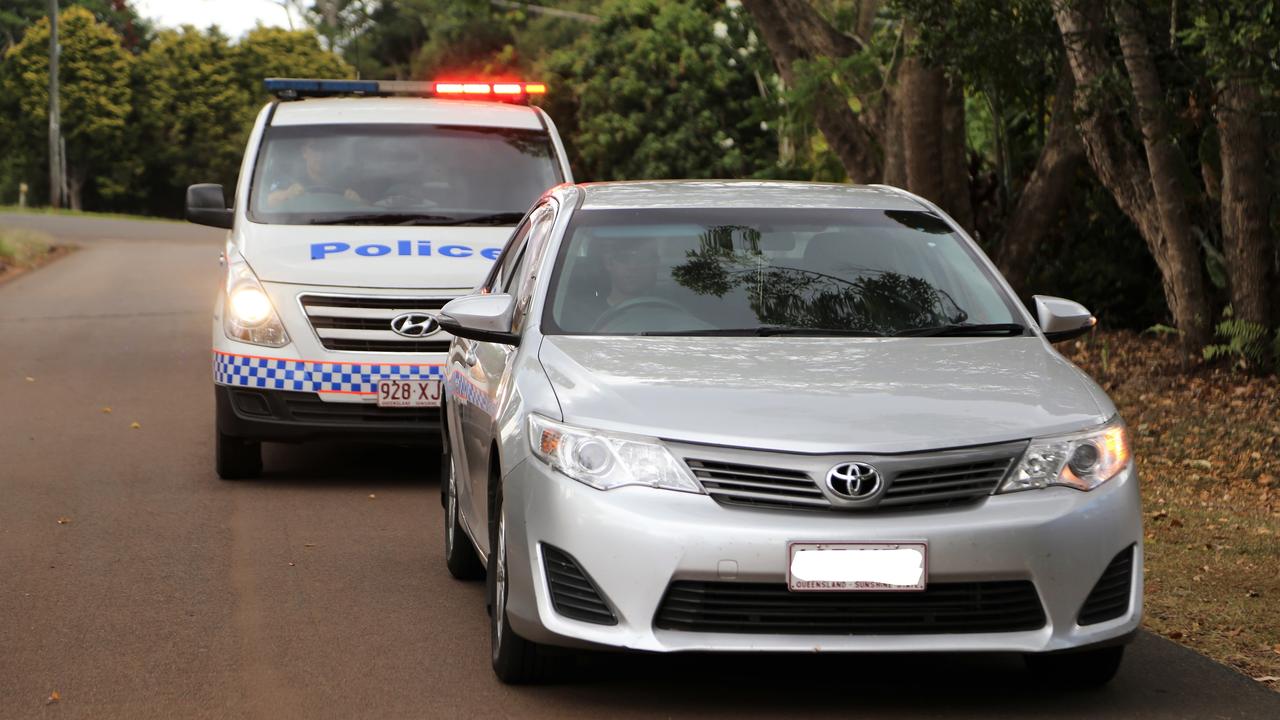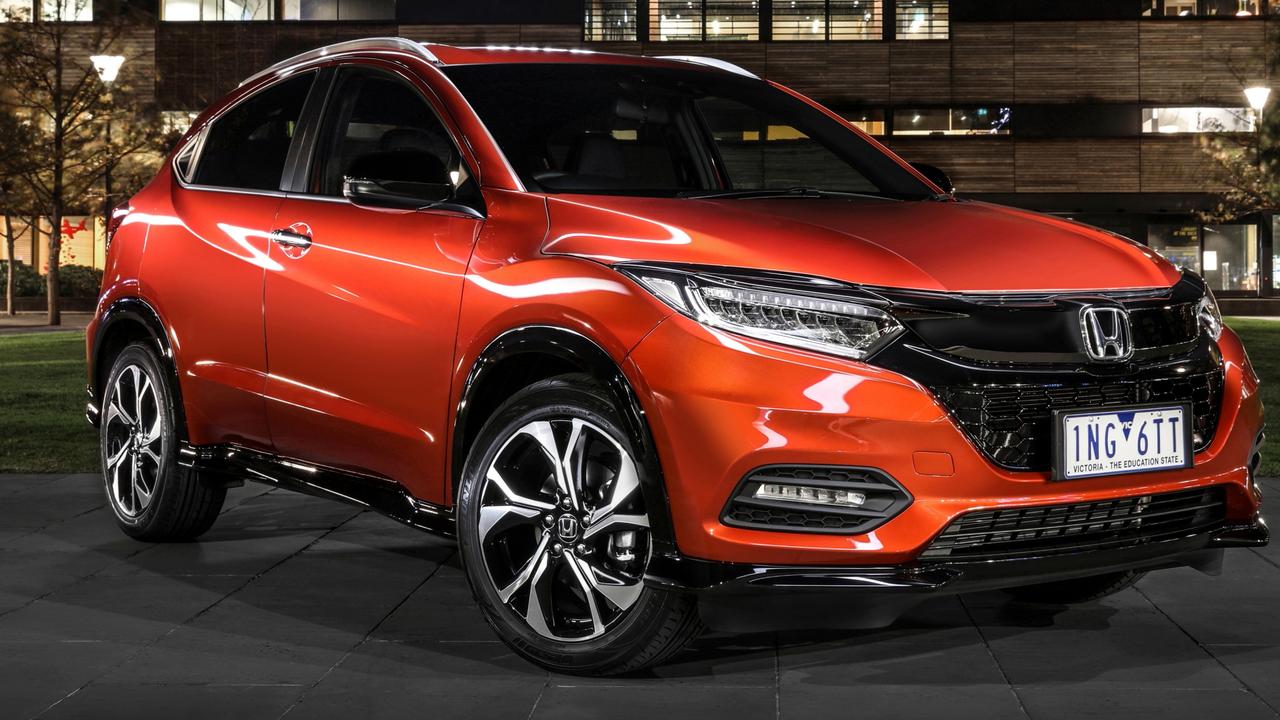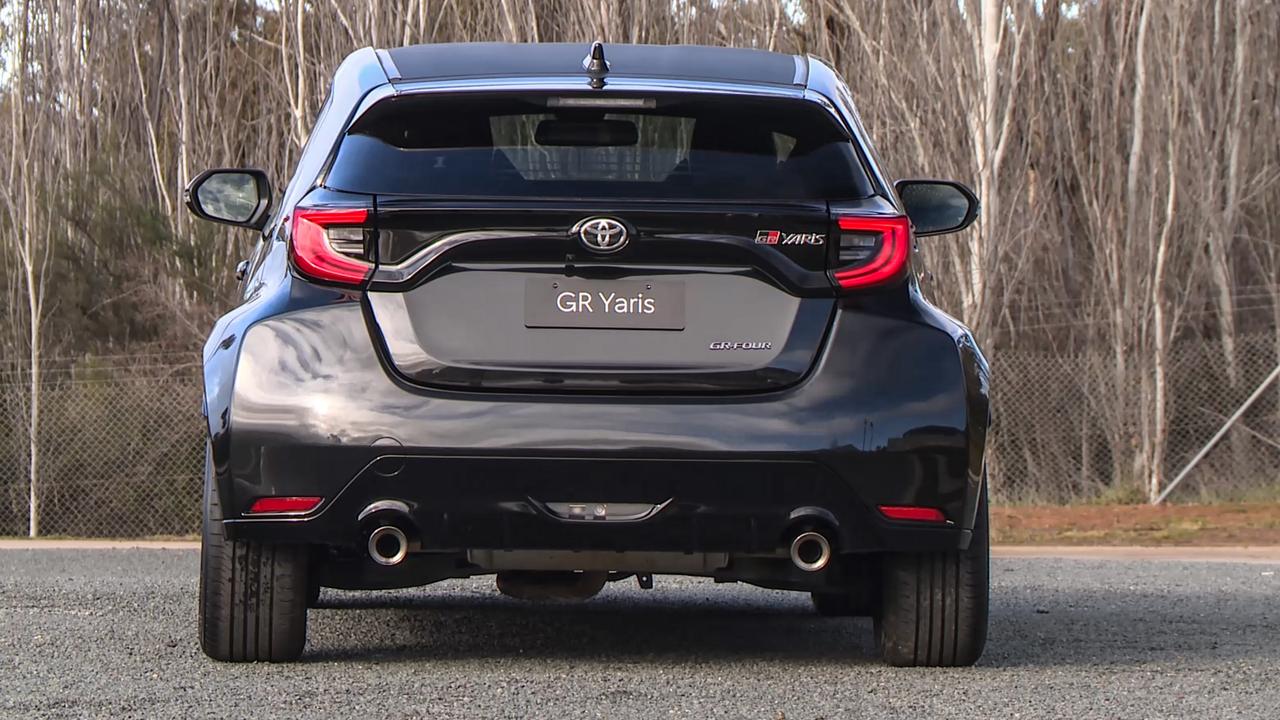Here comes the crash: Why Musk’s Mars push could kill Tesla
TESLA boss Elon Musk’s ambitious plan to send humans to Mars is a big deal. But it could be bad news for his supporters.
TESLA boss Elon Musk has been in the news a lot recently. He is apparently very excited about sending humans to Mars, and believes it can happen within eight years.
This is — no doubt about it — exciting and very, very cool. Unless you are a Tesla stockholder. Do you really want the boss of your start-up stuck in a Martian reverie when the company is struggling for survival?
And have no doubt: Telsa’s future is at substantial risk.
I remain personally excited by Tesla’s electric, self-driving cars. I would love to have one. But I can no longer be confident the company has a big future.
The electric car maker is losing huge amounts of money right now. Its business plan is to spend now and make money in the future. But there are very good reasons to believe that future — much like an imminent Mars colony — is just a dream.
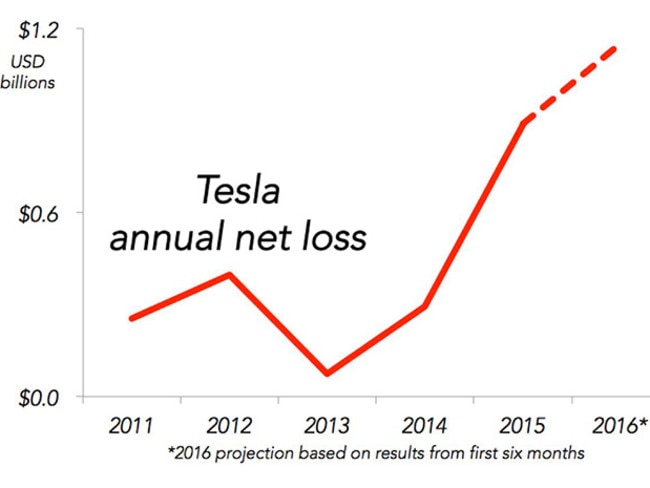
RISKS
Business is all about risk. No risk, no reward. When your business is just starting out, you have to take risks that can bring the whole edifice down. But Tesla faces too many such risks.
At the very beginning, it laid out its cutesy master plan:
— Build sports car.
— Use that money to build an affordable car.
— Use that money to build an even more affordable car.
— While doing above, also provide zero emission electric power generation options. Don’t tell anyone.
It did well to get through step one and has started on step two. But any plan with many steps involves a chance of a tumble at each step, and at the moment, the step to making the Model 3 — the “even more affordable car” — is looking like a big stretch.
The array of problems facing Tesla is … impressive.
1. DISTRACTION
Musk is not just busy thinking about Mars. His rocket shop SpaceX also has NASA contracts and other launching projects and has had some high profile disasters recently of its own.
SpaceX is also involved in an experimental transport tube technology called Hyperloop for which Musk is spruiker-in-chief. He is co-chair of research company OpenAI too.
The official disclosures of Tesla make the risk clear. “We are highly dependent on the services of Elon Musk … he does not devote his full time and attention to Tesla.”
The company has a Steve Jobs-style situation — high dependence on a charismatic and brilliant leader. Without him — whether due to lack of focus, illness or accident — a lot of the value of Tesla goes.
2. SOLAR CITY
Tesla is spending $2.6 billion taking over Solar City, a struggling solar panel company run by Musk’s cousin.
This went down in July/August this year and savvy investors headed for the exits. The combined entity has been called a “walking insolvency”. For some dubious economies of scale and a few iffy synergies, Tesla has imported a whole universe of other problems in a sort-of related business.
3. GIGAFACTORY
Tesla’s plans to bring down the cost of batteries by brute force. It is building the world’s biggest battery factory in the middle of the Nevada desert. It has a cool name, too: The Gigafactory. It’s probably the factory nerds are most excited by in the whole world.
The gigafactory is a very expensive bet — around $5 billion. It is only partly finished, and already some people are asking if the lithium-ion batteries it will make are about to be superseded. For the investment to pay off, Elon Musk really has to hope nobody invents a better battery than he can in the next decade or so.
Let’s assume he’s heard of nano-wire technology and aluminium air technology and has very good reason to assume they are going nowhere.
4. SALES
Over 350,000 people have put down $1000 to pre-order the new model Tesla, the Model 3. It’s a good start but a deposit and a sale are not the same.
Talking about sales almost feels rude. Tesla is so future-focused that what happens now almost seems irrelevant. But there is still not evidence lots of people will buy the product when they see it.
Tesla said it would sell 17,000 cars in the second part of 2016. It managed to sell only 14,370. At that rate, it won’t beat last year’s numbers of 50,000.
These are not big numbers (Toyota sells four times as many cars in Australia alone), and they could go backward. European Tesla sales fell around 25 per cent in 2016 compared to 2015.
The company plans to sell 500,000 cars a year by 2018. It better get a wriggle on.
5. QUALITY
This is part of the reason all those deposits may not turn into sales. A wide array of quality problems affect Tesla vehicles. It is reportedly the most unreliable major car brand on the road.
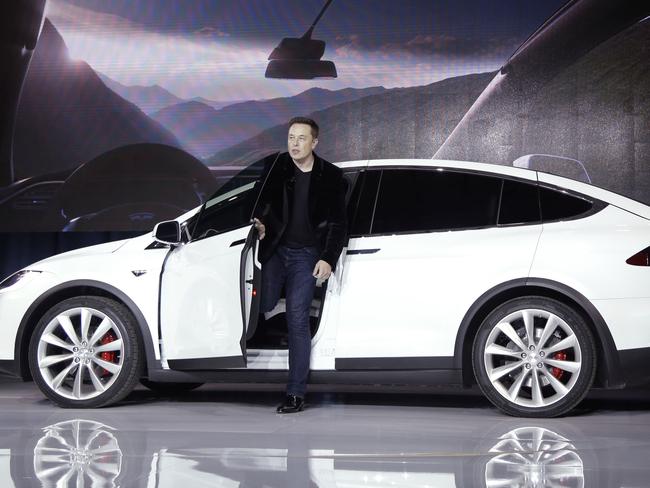
6-10
• Discounting. The company is doing what companies do and using “aggressive” discounting to move cars out the door. Musk has had to publicly beg his own employees to stop it.
• Costs. To try to finally magic up a profit in the next reporting period, Musk has also gone public with a call for employees to cut all possible costs, for a few weeks. Take the next profit result with a grain of salt …
• High-profile deaths from people trying to use the famous autopilot system. (Anyone else suspect knowing it is a potential death trap makes using a driverless system a lot less fun?)
• Financial. Tesla loves to talk about its finances without always bothering with the standard accounting rules.
• The “master plan”. Musk recently updated his grand vision. Apparently Tesla’s grand vision now includes taking aisles out of buses. You have to question the ability to see the forest for the trees.
You don’t have to know where the disaster is coming from. You just have to do the maths. If you take enough risks, even small risks, they interact with each other and soon you’re in the midst of a rolling disaster that just won’t stop.
It’s a sad conclusion. Humanity doesn’t get saved by one genius, one brilliant company or one brilliant product. As much as Elon Musk might seem like Iron Man, the genius inventor portrayed by Robert Downey Jr, the real world is not prone to Hollywood endings.
More often we find the spruikers of high-potential companies are overconfident, while people in their enterprises massage the truth. I would like to hope Tesla isn’t like that, but the rational part of my brain keeps objecting.
If I’m wrong, I’ll see you on Mars.
Jason Murphy is an economist. He publishes the blog Thomas The Thinkengine.
Follow Jason on Twitter @Jasemurphy


